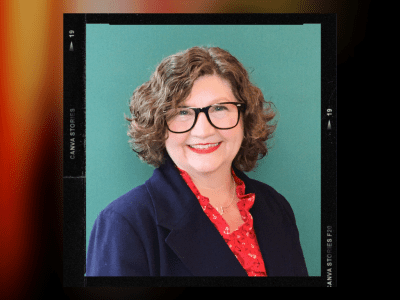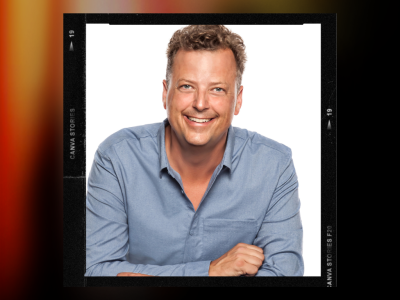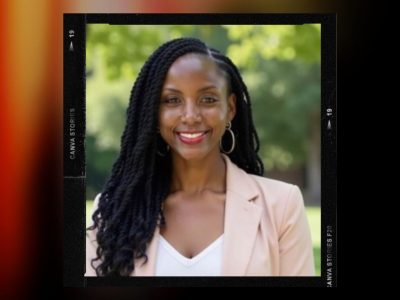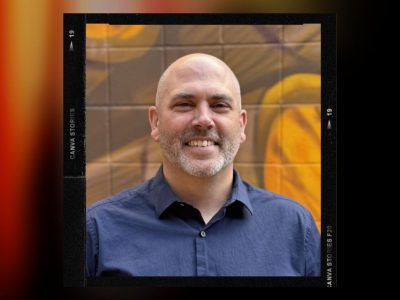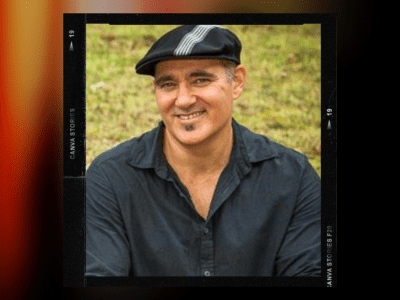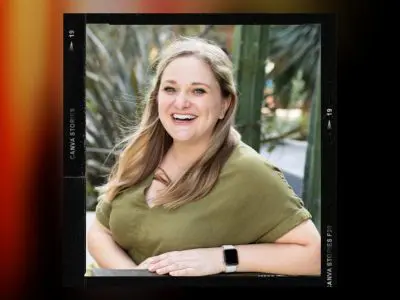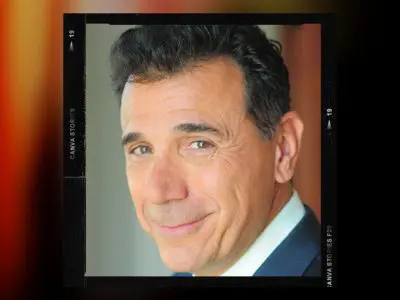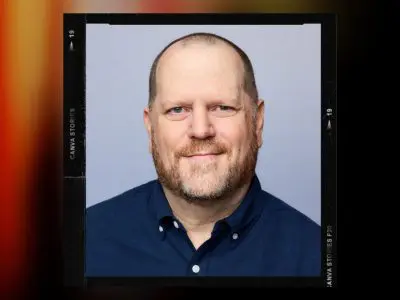Uniting Teams for Global Good
w/ Michael Cipoletti
Use the buttons above to listen now.
Transcript - Uniting Teams for Global Good
Uniting Teams for Global Good
Rich, Host: Hello, team. It’s me, your old friend, Rich Winansland, host of Team Building Saves the World, the show where I speak to thought leaders from around the world, discussing variable strategies and tools to help you and your team build a better work environment. And today we’re talking about the importance of giving back with the founder and executive director of FNE International, Michael Cipolletti.
But first, I do need to share some love with my supporters at TeamBonding. If your team is ready to experience teamwork for the power of play, then visit TeamBonding.com to learn more. Now, team, please join me in welcoming as my guest, a man who has made a life of service, creating sustainable solutions to infrastructure, education, health services, and food systems in Nicaragua, Peru, and the Dominican Republic, Michael Cipolletti.
Hello, Michael!
Michael, Guest: Hello! Hey, how are you?
Rich, Host: Thank you so much for coming and joining us. Let me just pan that down a little bit. I have a bunch of people here applauding you. They just live under my desk tax free. How you doing today, my friend? Thank you so much for coming on.
Michael, Guest: I’m great, and it’s wonderful to be here with you today Rich.
And I’m excited to talk about our work and what we do, what we’re all about.
Rich, Host: Fantastic. Let’s dive in then. First, of course, for my team, I want to have them get to know you a little bit better. So go ahead, let’s start off. Tell us a little bit about how you got started and why your path went in the direction that it did.
Michael, Guest: You know, basically I grew up on Long Island in a town called Northport and my high school had a club called “Students for 60,000.” 60, 000, was a number of homeless in New York city in the late eighties when the club started. And so, during my last couple years of high school, I was pretty heavily involved with the work that they were doing in New York City in the homeless shelters.
And I would do overnights, I would, you know, be doing food runs and things like that. And there were trips to Nicaragua that started in the early nineties. But because of other conflicts, I was never able to travel to Nicaragua in high school. And so, I graduated high school 95’ and started my first year at Stonehill College.
And during the summer between first and second year at Stonehill was able to convince my high school teacher, Peter White, to run an alumni trip to Nicaragua. So, in August of 96’, me and about 16 or 17 folks had headed down to Nicaragua for the, and for me the first time, and we built a school. And it was just sort of an eye opening, life changing experience.
It was a 10-day trip and two days after that trip ended, I was back at Stonehill for as an orientation leader for first year student orientation. And was talking to all my friends about the experience I had, and how amazing and transformative it was, and sort of people were talking we would love to do something like that here. And so this is in a time when alternative spring break was becoming a thing it was becoming sort of a in vogue thing and so sort of inspired by my friends enthusiasm I went and spoke with the folks at the campus ministry office and in student affairs, and there was a lot of interest, but a lot of trepidation.
I mean, Nicaragua, the history within Nicaragua, lots of people just remember what they’ve heard in the eighties and the civil conflict in the civil war that took place. And so after some talking and discussing and conversations with my high school teacher and conversations with some of the other folks that we worked with down Nicaragua, the school decided to give the program a green light.
And on February 28th of 1997, me and the 24 other folks from Stonehill traveled to Nicaragua for the first time. And what was the first hope alternative spring break trip and kind of the rest is history. Since then, I’ve been heavily involved working in Nicaragua and about 16 years ago decided that I wanted to dedicate my life to this full time.
And, FNE sort of came to life, and now we are working in three countries and just doing what we can to change people’s lives. One family at a time, building pathways out of poverty.
Rich, Host: Fantastic. So, let’s talk about FNE then. Yes, going down and giving your time and deciding that a life of service is the way that you want to go.
First of all, applause to you for that. That’s amazing. But how do you decide to make an entire company based around there?
Michael, Guest: There was a period of five years where due to a master’s program and due to work limitations, I wasn’t able to travel. And so, in the fall of 2007, sort of in the midst of the economic collapse in the United States, I traveled back to Nicaragua.
And, and just a light went on. You know, I realized that, first off, that this is kind of what lit the spark in me, I felt like I was being really called to being, to doing. And I worked in business, in restaurants and cigars, in marble and granite import, and installation and, on the corporate level and on the sort of homeowner level for a number of years.
And, while it was great and I made nice money and, I was more or less happy, I wasn’t fulfilled. And so that trip to Nicaragua in October 2007 just really sort of opened my eyes to where I was, where I wanted to be, and how I needed to sort of travel there. And so that trip led to subsequent trips, which led to me helping to lead some groups from my former high school, Northport High School, and then began working with universities.
And I realized that the key to the whole equation was looking at the importance of sustainability not coming down as the global north to save the global south, but looking at how we can partner hand in hand and build capacity and build trust amongst both sides and find solutions.
That are culturally and geographically appropriate and empower local communities to sort of take control of their lives. So just again, being a catalyst for change. And also, additionally, that experience for me first in the homeless shelters and then traveling Nicaragua was life changing and opened my eyes to a whole new reality.
And so I realized that we were serving to some degree, two masters, the needs of these communities, and then just giving access to the reality of the, 90% of the world to young people from the United States, from Europe, who kind of live in a bubble and don’t have the opportunity to see outside of, of their sort of privileged lives.
Rich, Host: So, is that what FNE does, it helps these people who don’t know how to help themselves to find a way?
Michael, Guest: Yeah, so I would say that it’s not necessarily that they don’t know how to help themselves, it’s that they don’t have the tools to help themselves.
Rich, Host: Actually, not the people you’re helping, I meant the student body and the, you know, the wealthy, let’s just call them the first world-ers that, you know, that are looking for some way of giving back.
Michael, Guest: Yeah. Yeah. I mean, so I think that that’s a huge, a huge problem. So, I think that there are lots of kids young people and adults looking for opportunities to serve. And so much of service is in many cases tied with religious organizations or tied with specific political or environmental causes. And we’re an organization that’s non-denominational, open to everybody.
And I think that one of the things that differentiates what we do from other organizations is it’s not like, this is the box and you need to sort of work within the parameters of our box, we’re looking to build boxes based on the needs of the groups and then also the needs of the community. So again, my, goal is if I go to a community and see what the need is obviously, I don’t know how to build and we just had spent a week here in Peru building eco toilets, in a community, where there’s no access to sanitation and water , and I’m not an expert in that, but I found somebody that’s an expert and then I bring the volunteers down, and they raise the money, and then they work alongside the experts ,and they build the you know, In a week, they built three of these toilets for families that didn’t have a sanitation prior to Monday and so the idea is right.
Creating opportunities for volunteers to come down and experience the developing world in a meaningful way. And again, it’s not riding in an air conditioned bus, take some pictures of poor people and then go back to your air conditioned hotel and swim in the pool and drink Mai Tais. It’s really walking in the shoes of the poor and understanding the reality of this population in this specific place. And again, giving the folks in these situations, living in these difficult environments, the opportunity to know people from the United States or from Europe. That have a different reality, but that different reality is very different from the perception that they may have based on what they see on social media, based on what they see on television and in print media.
And so the idea building change, making improvements to community infrastructure, and then building bridges between cultures. I think all too often in this world, we’re very focused, on what makes us different. It’s an us and them and us constantly.
Rich, Host: And that’s becoming more and more problematic as, as time moves on.
Michael, Guest: Exactly so but we want to do is instead of looking at the many differences, let’s find the similarities, let’s find the common ground and let’s look for ways that we can build something meaningful. For the short, medium and long term between the global north and the global south that just changes perspectives.
And again, I think that obviously right now, migration is such a hot topic, regardless of what side of the political fence you sit on. And understanding where these folks are coming from, and why they’re coming, is really important. And having that context, again, while it may not necessarily change our mindset, it’ll give us a better understanding of, of these realities, and what are some of the causes and effects of our history and our world?
Rich, Host: Speaking of walking in people’s shoes, that’s what actually got you involved with TeamBonding, the company that I work with, where we have a an event called Soles for Souls, S O L E S for S O U L S. Can you explain a little bit about that and how we even made this link together?
Michael, Guest: Sure. So Ty Goldstein came to Nicaragua with us in, maybe it was in 2016 I think.
Rich, Host: Okay.
Michael, Guest: And, so obviously, you know, , his parents are sort of the main driving force behind TeamBonding.
Rich, Host: Right.
Michael, Guest: And on that first trip, Wendy and Dave offered the possibility of bringing down some Tom’s shoes.
They explained this program. And so a couple suitcases, probably 50 pairs of Tom’s shoes, came down with the group from Sharon High School to Nicaragua.
Rich, Host: Nice.
Michael, Guest: And from there, the rest is history. I mean, we’ve distributed thousands of shoes between Nicaragua, Peru, Dominican Republic, to folks that in some cases don’t have shoes, in other cases have shoes, but maybe need a better pair of shoes.
And so sometimes they’re given away as sort of incentive for our scholarship students or for folks that work with us. In other instances, we sell them for $5 as a fundraiser for, let’s say, buying the school marching band uniforms. Or let’s say a school, their toilet, their latrine, is broken, they need a new latrine.
So we bring 50 pairs of shoes, some for $5 each, and we’ve just built a bathroom for the school. Families have pitched in $5 each, but they got a pair of shoes out of it that are great, wonderful shoes that are going to last a long time and are different and unique and have a message of hope and have a message of sometimes dragons or sometimes but you know, I think that it’s, it’s just a really wonderful way and that’s the thing, people always think that, oh, I don’t have time to travel, but without leaving the comforts of your hometown, you’re able to sort of send a little joy in a shoebox to somebody that wouldn’t ordinarily get a pair of Tom’s shoes and certainly is in need of them.
So it’s just a wonderful connection, and it’s just amazing how TeamBonding has stayed in touch with us and every time I arrive in, whether it’s Miami or New York, now there’s generally a giant box of shoes and tote bags for me to, for me to travel with.
Rich, Host: Awesome. Just so everybody, just so I can explain a little bit for my team out there, the way Soles for Souls works is we do bring you these shoes that are going to be sent down.
And you decorate them, you paint them, you make them a piece of art that, you know, could be thematic, could just be whatever these corporate individuals want to create them to look like. And then those shoes will be donated along to FNE who will take them down to the people who need them down in South America.
I love that we finally get to say, because a lot of people were saying, Oh, so these are just going to people who need shoes. And I’m like, no, it’s actually so much more than that, but I didn’t have the words before now to articulate it. Thank you very much. Can you give me an example of like an impact that a Soles for Souls had done?
You talked about the latrine, that’s great, but is there maybe like a, a, a story about, What it’s like when you finally arrive with these shoes for this cause.
Michael, Guest: About a year and a half ago, we did a trip. Again, over the past six years with civil socio political unrest in Nicaragua, with the pandemic, we’ve really kind of had to rethink our model and one of the programs we’ve added , is called the FNE Explore, which is a way for older folks to travel with us, have an opportunity to visit the communities, speak with community leaders and see the projects and maybe dabble a little bit, but it’s more of an overview and not as, as labor intensive as it might be for a high school, college or, or young adult group.
Rich, Host: Right.
Michael, Guest: And so, in the fall of 22’, we had our first FNE Explore group to Peru and we visited this community Minas de Pedregal, which is a community that’s here in Lima in San Juan de Lorigancho, which is the largest municipality in the city of Lima, and the poorest or one of the poorest, and it’s a community that’s really grown because of migration from the rural areas.
And so this is a place where folks will find open available land and squat. And there are certain protocols and provisions , in the constitution, which enable people to sort of, live on a piece of land for a determined amount of time. And through a process, they’re able to get ownership of the land.
Rich, Host: Interesting
Michael, Guest: It’s basically land that isn’t owned by anybody or is unutilized. And so these are folks that don’t really have secure housing. They don’t have potable water. They don’t have sanitation. And many of them are struggling and they’re sort of living on the bare minimum on the edges of extreme poverty. And so on that trip, we brought about 50 pairs of shoes up to Minas de Pedregal to these communities with our FNE Explore volunteers, and we’re able to sort of have like a little activity where we distributed shoes and had some conversations about their reality with our volunteers, and I think that that moment and that experience was just so eye opening and moving for the volunteers and obviously so valuable for the community members.
And again, it was just a moment where we’re really serve the needs of a community and provide our volunteers a real glimpse into a reality that is super foreign to them. So, I think for me, that kind of synergy is great when we were able to, use the shoes as a fundraiser, but it’s even greater to be able to bring sort of both sides together in a way that leaves a lasting impact on the community beneficiaries and the volunteers.
And yesterday, as we’re finishing one of the toilets in that community, on the side wall, there was a pair of the Tom’s shoes from that day sitting there that, had been washed and were sort of drying. And it’s just a year and a half later, these shoes are being used probably, two or three days a week up and down this crazy hill on a dirt road.
And it’s just amazing how the efforts of TeamBonding to get the shoes painted and sent to FNE and then for us to bring them down and then to get them distributed, you know, that lasting impact and that trickle down effect or that ripple effect, and I think that that’s something I like to talk about a lot.
A group comes down to Nicaragua or to Peru to the Dominican Republic for a week. The impact that it has on those volunteers is gonna be far greater than the impact on the community.
Rich, Host: Mm-Hmm.
Michael, Guest: However, as part of a continuum ’cause we’re not just coming down for one week and forgetting about these folks, the other 51 weeks of the year, we’re continually working with those communities to create programs to create opportunities.
To follow up to ensure that people are getting their needs met and to understand how we can do a better job of impacting those communities. And so seeing the ripple effect of those shoes, seeing how that stone that was tossed in the fall of 2022 is still sending ripples across the water. I think is is one of the things that energizes me and makes me want to keep going with this work.
Rich, Host: And I want to keep going with this conversation, but I hope you don’t mind Michael, I need to step away just for a quick second. I just need to tell my friends out there about a company I am very proud to be a part of TeamBonding.
TeamBonding was founded over 20 years ago with one simple question. How can employees have a great time while fostering strong, authentic bonds between people who work together? No matter where your company is located, TeamBonding offers powerful, engaging, custom team building events designed to get the best out of your team anywhere in the world.
They’ve created a catalog of innovative events using the power of play as a learning tool and tapping into the correlation of work and play. So whether it’s scavenger hunts to Jeopardy, painting shoes, so much more. The TeamBonding of activities, be they live, virtual or hybrid, maximizes the impact of team building with an accent on fun. Visit TeamBonding.com to schedule your event now.
TeamBonding! When you want seriously fun results.
And we’re back talking to Michael Cipolletti. Michael talking of just last thing. The clients themselves, the people who hire us to bring the shoes for them to paint and then ship to you. Do they get something to show what happened with the shoes that they created at the end?
Is there a return on investment, I guess, is what I’m looking for.
Michael, Guest: So, constantly I’m sending pictures of the shoes whether they’re, on feet or being handed out to folks. One of the things that we’re hoping to do in the immediate future is really follow the journey of these shoes as they arrive and get painted and then travel to Miami and then get to Nicaragua, Peru, Dominican Republic. And get a end to end perspective of the life of a Tom’s shoe once it passes through the TeamBonding facilities. And I think that the hope is to make that happen sooner rather than later.
And I think that it really would be an opportunity to reinforce just how powerful and impact these shoes are having. And I think that I worked for a couple of years in higher education. I think that team building and development and leadership development is so critical. And so, it’s very easy to go do a ropes course or go have an experience where you’re working as a team for force bonding.
This is an opportunity to do something as a group where you’re, directly impacting the lives of, other people. And I think that makes it so much more meaningful, so much more powerful.
Rich, Host: Yeah, fantastic. Cause that’s exactly where I wanted to go next. I mean, how do we convince more and more, like how would you, I should say, convince more and more of these corporate entities out there who are thinking, I need to do a team building event.
I need to have some time for my people to get together and just be together, not doing the day-to-day drudge. But how to make that part of giving back.
Michael, Guest: Yeah, so I think that one of the pieces for me that I’ve constantly been looking at, an opportunity like the Soles for Souls, is a great one but I also think that rather than spending $28,000 on a rope course, imagine taking five or six of your employees down to Nicaragua or Peru or, or Dominican Republic for four or five days and building a house for a family or building a toilet for a family or working in a school.
And I think that our housing program is just a wonderful model. So, we started building homes in Nicaragua following Hurricane Mitch, which was in the fall of 2000. I’m sorry, 1998.
So, Hurricane Mitch was just a crazy hurricane that destroyed thousands of families homes. It was the first time a sitting US President traveled to Nicaragua because, the top of a dormant volcano, the crater filled with water, the side of the volcano, broke off and there was a mudslide for about 40 miles and so whole villages were wiped out.
And so, we started building these emergency houses to replace some of those homes. 10 years later, we’re still building free homes in an emergency style. And so, I looked at the model and I looked at social housing in the United States, in Europe, and I said, well, you know, if we’re building kind of a cinder block square or rectangle with not a lot of character or not a lot of spirit in it, people are going to treat it as such.
And so, we rethunk, we rethank, rethunk, rethunk? I don’t know. We, we, we analyzed the model and we rebuilt it from the bottom up. And first off we started using brick as the main material. So just give the house a little more life, a little more color.
Rich, Host: Sure.
Michael, Guest: We changed the shape from a rectangle to an L, increasing slightly the square footage and just giving the house a little more character.
We spoke with people who run a list to receive a free home and said, look, like, what can we do to create a model that’s a little more sustainable for us as an organization and for the community and for you to feel like you have a little more skin in the game.
Rich, Host: Right.
Michael, Guest: So, it began a program, a housing program, where the family pays 35 percent of the home, interest free, over the course of four years.
The family has to show that they have the title to land that we’re building on. They have to help with the construction. They have to provide some of the materials and specifically the volcanic rock that we use in the foundation which is locally sourced. And then lastly, most importantly, the title of the home is put in the name of the woman head of household.
So, in Latin America, and specifically Nicaragua in this context, there’s a lot of wandering that happens. And, many women are single mothers, many men have multiple families. And so, we wanted to ensure that that woman head of household was empowered and knew that she had shelter if, and when her partner left.
And so a house is $3,000. And like I said, the family ultimately pays 35 percent of that money back. That money is then reinvested in a loan program that allows people to expand on their home or build open a small business at home.
Rich, Host: Nice.
Michael, Guest: And again, the idea is like, imagine, a company coming from, let’s say Massachusetts, and instead of going to the ropes course in Cape Cod, coming to Nicaragua.
So, in four or five days, you can build a home, change a family’s life, and have this opportunity to work together to create an experience that you’re never going to forget. I think that if more people thought about giving back, we would live in a very different world. And again, not everybody’s going to want to travel to Nicaragua.
And that’s the thing. There are different levels of giving back and there are different ways to give back. And obviously we can give back financially, we can give back with our time, and we can also give back in an experience like this with TeamBonding. Just a little step makes a huge difference in people’s lives.
Rich, Host: How do you go about expressing that though? Because we’re having a lot of corporate culture now we’re having a lot of companies who are coming to realize that the people who work for them want to give back that they want to be part of a company that’s doing that, but the company still has those blinders on where they think, great, I’ll find a local community that requires my assistance. How do we get those people? What advice would you give to those people to help them to see the greater world need?
Michael, Guest: Yeah, I think the biggest thing is looking at the in place societal structures, you know, domestically. And while we do fail populations in the United States, there are much more, many more, pathways out of poverty out of difficulty in the developed world than there are in the developing world.
Rich, Host: Okay.
Michael, Guest: And again, I think that we in the United States, there are obviously larger systemic problems that we’re not going to solve and are much more complicated, whereas in the developing world, if we have a good solid community partner, we can go in to a community and we’re not going to change the world, but we are going to change the lives of a family, a young person, a school, people that don’t know how to change their reality.
They don’t have the toolbox to be able to go in and change their reality. And so I think that, there are lots of employees that want to do things and there’s lots of employers that respond to that by going to the, it’s just like the big box store or like the Best Buy of non-profits, they go to the Red Cross and they go to, and those are great organizations they do wonderful work-
Rich, Host: Yes, agreed.
Michael, Guest: Okay, but but a lot and lots of those organizations they’re top executives make more than an organization like our organization raises in an entire year. And so the impact of your $500 donation or your whatever drive is very diluted. When you raise $500 for an organization like FNE, we’re providing 50 kids ,with muscular dystrophy or cerebral palsy, with diapers and formula so they can survive for a month.
You know, and we’re not only providing it for those kids, we can tell you what their names are, where they live, who their parents are, what, what some of their other difficulties are. So, I think that the impact that we can make, you know, as a smaller organization is just so much more tangible. We are on the ground, we’re seeing the families, we’re involved with them. We know their peaks, we know their valleys. We know how to get to them in that sweet spot and create a meaningful engagement. And we know how to take small donations and turn them into big gains.
So I think, first off, you know, 90 cents out of that dollar is going directly, to the program.
Rich, Host: Right.
Michael, Guest: It’s not just the 90 cents. It’s name and the face and smile that you know you’re getting at the end of that 90 cents. You know, we’re just coming off of St. Patrick’s Day, it’s like the pot of gold at the end of the rainbow. We’re able to see that smile, that smile is the pot of gold. That, that transformative moment is the pot of gold. And, for me, it’s what kind of keeps me driven towards continuing to act and to continue to live in this way.
Rich, Host: I’m told by one of my producers that I have to ask you about somebody that impacted you and influenced you when you were getting started.
Something about one of your friends in Argentina’s mother. Can you tell us that story before we go?
Michael, Guest: Sure, sure. So I think that as a young guy starting out with this work, I was confused. I saw all this poverty, all this sort of pain and I felt guilty, you know, I came from upper middle class, Long Island, a place of opportunity where I turned on a faucet, I had hot water, cold water, you know, I went to the fridge and it was full.
I walked down the street and I was able to buy myself a slice of pizza or a bagel, which are obviously staples in Long Island, that and 7 Eleven and, and I felt shitty. I felt horrible about about what I had.
Rich, Host: Right.
Michael, Guest: And so after my first trip to Peru, which was March of 98’, a young woman was on this trip with me named Maria, and we became really good friends.
And she invited me to go to New York with her because her mom was up from Argentina getting cancer treatment. And so the day before St. Patrick’s day, we drove down to Long Island, stayed the night at my parents, and then on St. Patrick’s day, we headed into New York City. Which wasn’t necessarily the best idea in a car to see her mom. And we met with her mom at a hotel. We sat down, her mom was sort of, you know, recovering and, you know, we were talking to her about this incredible experience we just had in Peru building a cistern at a school. And her mom started asking me some questions and I started answering it.
And at a certain point, her mom stopped me and she looked me straight in the eye. And she said to me, you need to change your perspective. And your goal is not. to go down to the level of the poor. Your goal is to raise people up so that they have the same opportunities that you have. And at that moment, a light went on in my head and maybe even a light or a flame grew a little brighter and stronger in my heart.
And it was sort of just this really transformative moment. And I think that, you know, 26 years later, that is definitely one of, one of my mantras and one of sort of the founding principles of what the work we do is all about, you know, our goal, and that’s as a nonprofit, it really should be in any sector of the world is to bring people up to a higher level.
Nice. You know, let’s not lower our standards, let’s keep our high standards. And let’s give people the tools that they need so that they can reach the next rung. They can reach the next level, they can grow as individuals, and as a result, we’re going to grow as a society and grow as a better world.
Rich, Host: I think we’re going to leave it right there at that.
Hopefully that will go on to inspire others. Michael, thank you so much. My team out there, again, give a big round of applause for my guest, Michael Ciporetti.
Let Me ask you, Michael, where can my people go if they want to find out more about you and especially more about FNE?
Michael, Guest: So very excited. We’re going to have in the next couple months, a brand new website, a company called Entree Health is rebuilding our website, FNEinternational.org. We’re also on all the social medias, the Instagram, the Facebook, the Twitter, and you can donate through our website, you can donate through Facebook and, and Instagram, and there’s always new stories on social media about what we’re doing and where we’re at.
And we’ve had three straight weeks of wonderful groups and with another three or four coming very soon. And so, join our social media, join a movement. Be part of change and, thank you so much for this opportunity.
Rich, Host: Oh, thank you, my friend. And you have a good time?
Michael, Guest: I did. That was great.
Rich, Host: Good. I’m, I hope that continues to be so, cause I’m afraid it’s time for my speed round.
It’s the one piece of hokum I allow for this show. All right, my friend, here’s what this is. My speed round is very simple. I am going to set some music that plays for exactly 60 seconds. In that time, I’m going to ask you just a series of completely innocuous questions. Just as a way for us to get to know you a little bit better.
The objective here is to answer as fast as you can, like one word answers. Just keep the ball rolling to try to see how many you can actually hit in 60 seconds. Okay. All right. Once we hear the music, I am going to ask questions and away we go.
What’s your name?
Michael, Guest: Michael Cipolletti.
Rich, Host: Do you have any kids?
Michael, Guest: Zero.
Rich, Host: Do you have any pets?
Michael, Guest: Yes, one dog, Fiona.
Rich, Host: If you could ask Fiona a question and you actually get an answer, what would the question be?
Michael, Guest: Why do you sleep under my bed?
Rich, Host: What is your favorite childhood memory?
Michael, Guest: Watching baseball with my dad.
Rich, Host: Where, if anywhere, would you like to live for one day?
Michael, Guest: I think the moon.
Rich, Host: Favorite ice cream flavor,
Michael, Guest: Pistachio.
Rich, Host: Favorite movie?
Michael, Guest: Godfather.
Rich, Host: What’s something you remember from kindergarten?
Michael, Guest: My teacher, Mrs. Rubo.
Rich, Host: Nice. If you could live in any television home, which one would you choose?
Michael, Guest: The Cosby’s
Rich, Host: Name one thing you would change about yourself.
Michael, Guest: My ear hair. I don’t want all the ear hair. 47, I turned 47 yesterday. Too much ear hair.
Rich, Host: When I hit my 40s, I had, I don’t have ear hair in my ear. I had these tufts. Growing at the back of my lobes. It’s insane.
You got 12, my friend. Well done. That’s an excellent job.
Michael, Guest: We might’ve had more, but I sent you off the, off the rails there with the ear hair
Rich, Host: A little bit. A little bit. I might’ve gotten one more out of you, but okay. Michael, thank you again so much for coming on. This was great. I hope some point in the future you get to come back together and we can find out more about how FNE is doing and, and how your family’s abroad are take being taken care of.
Michael, Guest: Well, thanks so much for this opportunity. It’s been great. It’s been a lot of fun.
Rich, Host: Thank you, pal. But as for you, my team, that’s it. We are wrapping up yet another episode of Team Building Saves The World. If you’ve enjoyed this episode, whether you’re new to the podcast, an old fan of the show, please be sure to share with everyone, you know, whether you’re a coworker or friend or family member, it just helps us to share all this vital information.
You can find out all about us, including all past episodes of team at TeamBonding. com slash podcast. You can also find us wherever you find your favorite podcast, Google podcast, apple podcast, spotify, wherever you go to listen, I guarantee you we will be there and don’t forget to look for us on all the social medias at team bond podcast.
Leave me a message. Tell me what you liked about the show, or if you have an idea for a future episode, I want to hear from you. But before we do that, my friends, please always remember as we wrap up this episode of Team Building Saves The World. Never forget that if you’re within the sound of my voice, you’re on my team.
Now I am forever going to be on yours. So long team, I’ll see you next time.
April 1, 2024
In this episode of “Team Building Saves the World,” Michael, the founder of FNE International, shares his inspiring journey of dedicated service and community empowerment. From his early involvement in social justice initiatives to founding the H.O.P.E. Program and organizing impactful trips to Nicaragua, Michael’s passion for service has driven him to create sustainable change. Through initiatives like Soles for Souls, FNE International distributes essential items like shoes to underprivileged communities, fostering connections between participants and those they help. Michael highlights the profound impact of these initiatives, emphasizing the reciprocal nature of CSR service where donations directly translate into tangible support for those in need.
Reflecting on a transformative encounter during a visit to New York City, Michael emphasizes the importance of cultural empathy and lifting others up, and explains how to help impoverished communities while inviting listeners to join the movement for positive change. Tune in as we explore the power of Uniting Teams for Global Good and how Michael’s approach to community development initiatives is making a meaningful difference.
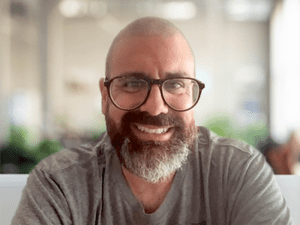
About FNE International: A non-profit organization (US 501(c)3) creating sustainable solutions to infrastructure, education, health services, and food systems in Nicaragua, Peru, and the Dominican Republic.
" Instead of looking at the many differences, let's find the similarities, let's find the common ground and let's look for ways that we can build something meaningful for the short, medium and long term."- Michael Cipoletti
Get more human resources and leadership advice.
Less drama? Greater teamwork and job satisfaction? TeamBonding is here to help you build a stronger and happier team. Subscribe to get our team building podcast and thought leadership blogs sent straight to your inbox.







